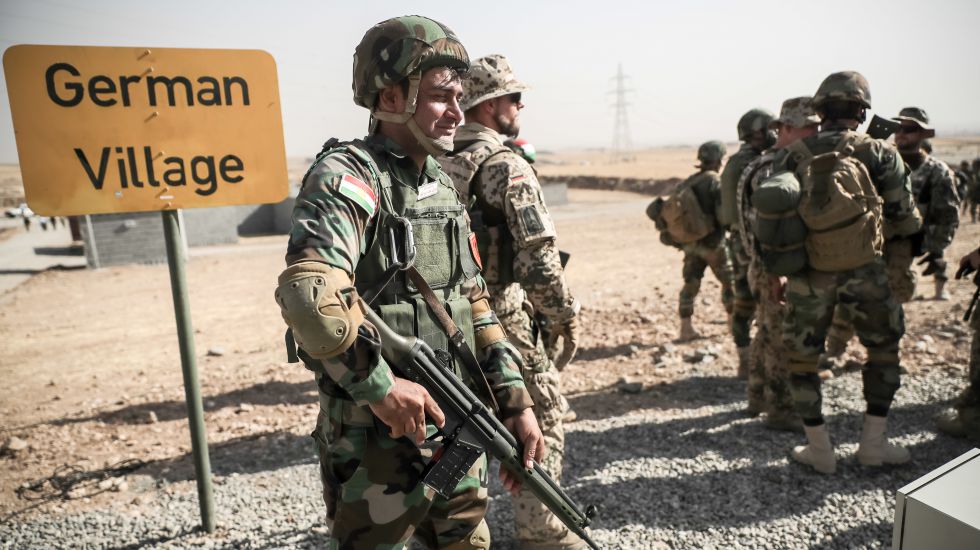On 12 January 2022, the federal cabinet voted in favour of extending the so-called anti-IS mission of the German armed forces in Iraq. This decision follows a joint letter from Defence Minister Christine Lambrecht (SPD) and Foreign Minister Annalena Baerbock (Greens) to the parliamentary group leaders in the Bundestag, which was submitted earlier this week. Thus, the mission is to be extended until the end of October this year. The Greens also voted in favour of the mission, although they were against it when the Iraq mission was extended last year. Now in government, they united behind the extension of the mission, which was proposed by Foreign Minister and Green Party leader Baerbock.

The Bundeswehr has already been deployed in Iraq since 2015 under the pretext of fighting the so-called Islamic State. A total of 500 soldiers are being deployed, who are to be responsible for training domestic forces both in the centre of the country and in the Kurdish-dominated north. Control of airspace and logistical tasks are also part of the mandate. Until now, the US Army was also represented in Iraq. However, it withdrew its troops at the end of 2021, which led to a new, improved position for the German army in Iraq. To simply give up this improved position is, of course, against the interests of German imperialism, which repeatedly proclaims that it wants to take on "more international responsibility" in order to create a better starting position for itself in the struggle of the imperialists. In addition, the mission in Iraq is, besides the one in Lebanon, the only official mission of the Bundeswehr on Asian soil after the last troops have been withdrawn from Afghanistan in 2021.

Green warmongers
The German public is particularly surprised that the Greens agreed to the extension of the mandate. Yet the party has long ceased to be the pacifist peace party it was long thought to be. As early as 1992, during the war in Yugoslavia, the then Green MEP Claudia Roth and federal executive committee member Helmut Lippelt publicly called for military intervention. On 16 October 1998, a majority of the Greens voted in favour of the first German war of aggression since the Second World War. At the beginning of 1999, the bombing of Belgrade began, in which, according to official figures, 2500 people were killed. To this day, soldiers of the German army are in Kosovo. Also in 2001, the Green Party voted in favour of the war in Afghanistan at its federal party conference on 24 November. Immediately after this decision, Claudia Roth - today, by the way, Minister of State for Culture - took the limelight to announce "Are we for or against this war - this question does not arise (...) we are and remain an anti-war party". And also in 2014, when the discussion about the anti-IS mission in West Asia started, the Greens voted for the war. "Germany must take the initiative at the United Nations. There must be a robust mandate, IS can only be fought militarily" - said Katrin Göring-Eckardt, parliamentary group leader of the Greens in the Bundestag at the time.
Thus, as it turns out, the image of the Greens as an anti-war party is long outdated. The current approval for the extension of the mandate of the German armed forces in Iraq proves that once again. In addition, with Annalena Baerbock as foreign minister, the Greens now hold an office that is directly linked to the decision on military interventions, war operations or other Bundeswehr missions. According to the goals of German imperialism, which aspires to become a superpower, and the specific military steps that the FRG wants to take, further approvals and initiations of German wars on the part of the Greens are probably only a matter of time.










